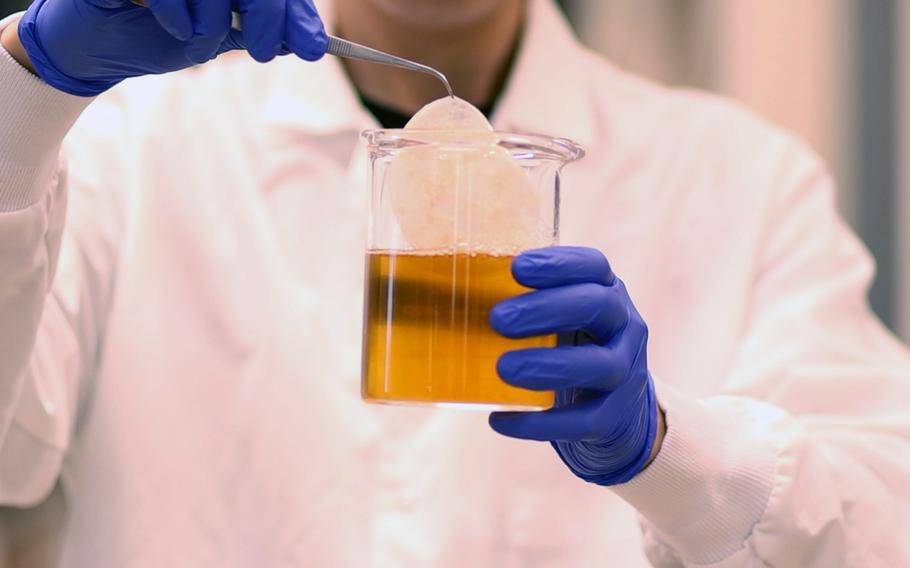
Army-funded researchers used SCOBY, a byproduct of the fermentation process that produces kombucha tea, to develop tough, functional cellulose that they say will have many battlefield applications. (Tzu-Chieh (Zijay) Tang/Massachusetts Institute of Technology)
Kombucha tea has inspired new Army-funded technology that may help troops carry out potentially life-saving tasks, such as detecting chemicals and other pollutants in the environment or purifying water in the field.
Engineers at the Massachusetts Institute of Technology and Imperial College London used SCOBY — which stands for Symbiotic Culture Of Bacteria and Yeast and is a byproduct of the fermentation process used to make the fizzy, often tart beverage — to produce cellulose that can perform numerous functions.
By modifying the yeast in the SCOBY, the researchers found they could create materials that glow in the dark, purify water or change color when sensing dangerous substances.
“The yeast can be designed to secrete proteins of choice,” Dawanne Poree, program manager of the Army Research Office, said in a phone call. “You can decide, ‘I want this to sense a particular chemical agent or toxin,’ and then design the yeast to secrete the protein for that particular chemical.”
The yeast can also be programmed to break down pollutants or pathogens after detecting them, a research paper published in the January issue of Nature Materials said.
Using SCOBY, the researchers were able to produce large amounts of cellulose, the paper said.
The most immediate use for the material could be for chemical test strips, Poree said.
The technology could also be used to “grow” materials used to make clothing and tools that soldiers require on the battlefield, one of the researchers said.
“We foresee a future where diverse materials could be grown at home or in local production facilities, using biology rather than resource-intensive centralized manufacturing,” Timothy Lu, an MIT associate professor of biological engineering, said in an Army statement.
Funding for the project came from the Army Research Office, part of the Development Command Army Research Laboratory, and the Army’s Institute for Soldier Nanotechnologies at the Massachusetts Institute of Technology.
lawrence.jp@stripes.com Twitter: @jplawrence3